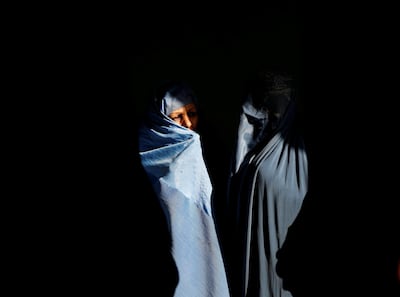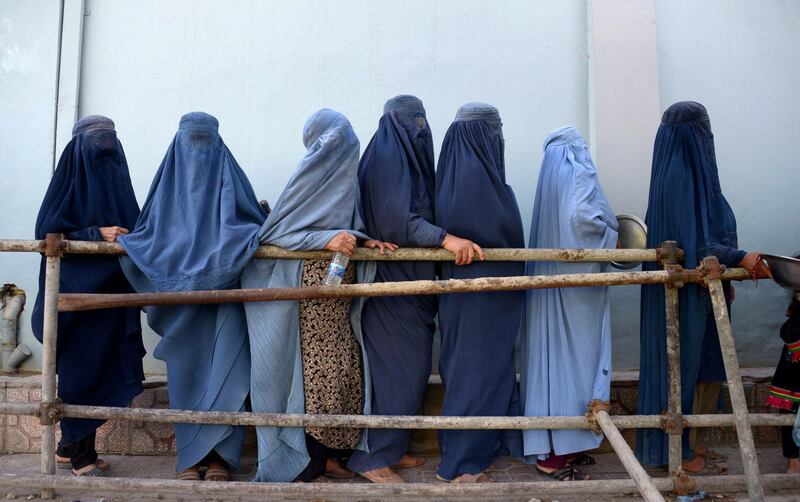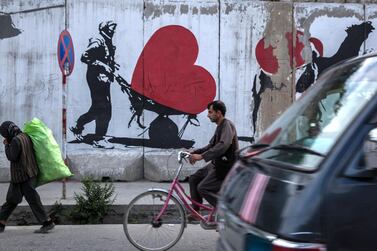Afghan housewife Farida suffered in silence for years as her husband repeatedly beat and raped her. One day last year, she decided she could bear it no longer.
“I climbed up to our roof to jump down and kill myself,” Farida recalled, sitting in the living room of her two-storey home in Herat, a cup of green tea in her hand.
Ascending the ladder, one slow step at a time, it was the image of her six children that eventually held her back. Now, it is talking to her psychologist that helps her to keep going through life, she said.
But Farida is an exception in Afghanistan, where mental health services are scarce and seeking help can be frowned upon in a conservative society where family honour is paramount and personal problems are not discussed.
According to the International Psychosocial Organisation (IPSO), an agency that provides counselling services and cultural dialogue in Afghanistan, 70 per cent of its 37 million people are in need of psychological support. Decades of war have displaced millions and affected livelihoods, while many areas are under constant the threat of militant attacks.
Women seem to be disproportionately affected. Independent Human Rights Commission Commissioner Qudri Yazdan said in late 2017 that up to 3,000 people commit suicide in Afghanistan each year and 80 per cent of them were women.
At the same time, there is a need for more qualified workers in the mental health field. Between 2004 and 2018, only about 800 people completed a year long government-run programme to train people as psychosocial counsellors.
The numbers are however growing, said health ministry spokesman Wahid Mayar. "We are training community social workers with diverse backgrounds and there are now also about 100 psychiatrists in country," he said.
"Kabul University has a psychology programme as well."
There is also a slow change in attitudes toward seeking counselling, in large part because of people like Farida, who is not afraid to talk about the positive changes it has brought to her life after years of misery.
“It wasn’t easy early on. I was 12 years old when I got married, becoming my husband’s second wife. During my early years of marriage, there was violence in the streets and violence in my home. I had no safe place to go,” she recalled, her green eyes tearing.
Her small house in Herat, a metropolis near the Iranian border in western Afghanistan, is her third home after the family fled Bamiyan and then Kabul. Her husband's violence got worse here, Farida said, breaking her leg on one occasion and her arm on another. She continues to fear her husband but running away is not an option – she is certain she would be found.
“I couldn’t discuss my problems with my friends. It would be shameful and I’d be scared they’d tell my husband. That’s why I used to keep everything inside of me.” She admitted sometimes talking to the well near her house when fetching water.
Soon after she nearly attempted suicide, Farida was introduced to a clinical psychologist in Herat by World Vision, an aid agency that offers counselling services to women. Farida sees her psychologist, Jamila Sherifi, once a week, with the sessions paid for by the agency.
"It's different with Jamila," she said. "I trust her. I even wake up early on those days that I have an appointment with her."

Ms Sherifi is one of 31 registered psychologists in Herat, a city of almost two million where only 22 of its 120 government-supported clinics offer psychosocial support.
While Farida has embraced the help she has received, many Afghans are held back by feelings of shame and worries about family honour.
“It’s a big issue in our culture,” said Fereshta Quedees, the country director of IPSO. “Everyone’s always watching everyone else. Afghan society doesn’t want to cause shame to their families.”
Although Afghanistan continues to see frequent attacks, it is not only the violence that causes trauma, according to Ms Quedees.
“I don’t know if I should call it resilience or disassociation, but it’s rare that people constantly worry about the conflict. Even when there is an attack, people go back to their lives almost immediately if they are not affected.”
A lot of stress is caused by quickly changing values in a traditional society, causing an identity crisis for many, she said.
“Afghanistan is in a transitional period, changing from a traditional society to a modern one. The problem is that we now have both extremes and little middle ground.”
Farida believes stress is the cause of her husband's violence. "He is trying to provide for us, but he often can't manage and we have little money. It angers him," she said.
For men, approaching their local religious leader for help is preferable to seeing a psychologist, according to Mullah Shira Agha, an imam at a mosque in Herat.
“I have between seven or eight people seek my advice every week,” he said, sitting barefoot on the floor of the mosque.
“Many don’t come at all, so I try to include encouraging messages in my preaching. Those men I talk to usually want to discuss family disputes and home affairs.”
What also keeps people from seeking mental health counselling is a lack of understanding of what psychologists do and how they can help, said Lyla Schwartz, a Kabul-based American psychologist who recently launched a mental health awareness initiative called Peace of Mind Afghanistan.
“That’s exactly what we’re trying to do, to get people to talk about mental health and for them to admit that it’s a problem here and all over the world. No one should feel isolated,” she said.
As for Farida, she now wants to live to create a better and easier future for her children.
“I couldn’t leave them behind, especially my four daughters. A lot is changing for them on a daily basis, because Afghanistan is changing,” she said.
Farida has taken her eldest daughter, who is already struggling with depression at just 15, to see Ms Sherifi too.
“I want her to have someone she can trust," she said. "Someone who can help her during difficult times.”






